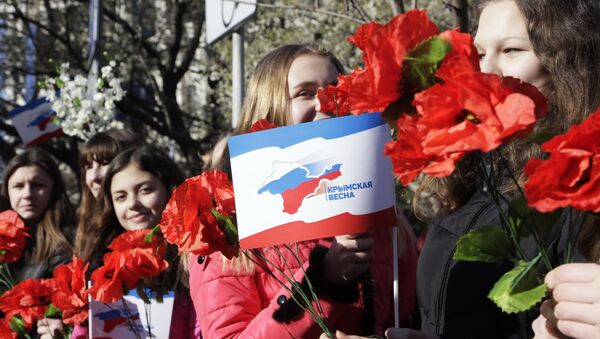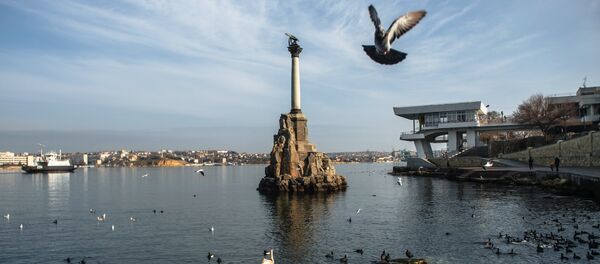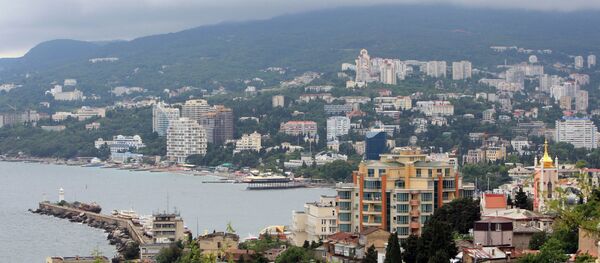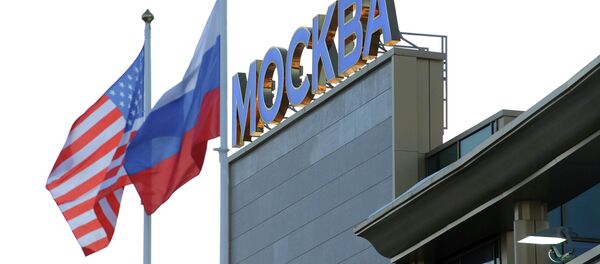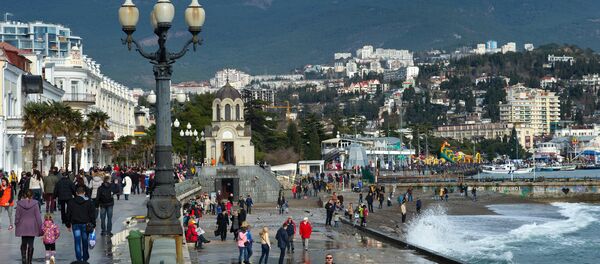Two years ago, after the Maidan coup and the rise of a new anti-Russian government, Russian-speakers in Ukraine's south and southeast began staging mass rallies in defense of their rights. Nowhere were these voices more poignant than in Crimea, which had been transferred to Soviet Ukraine in 1954, where over 90% of the population spoke Russian and more than half are ethnic Russians. Their language had gained official status several years earlier but this civil rights gain was shredded during the Maidan government's first day in the legislature.
Two years on, commenting on the anniversary of the decision Crimeans made on that fateful spring day, Crimean Prime Minister Sergei Aksyonov suggested that the past two years have felt like an entire epoch.
"Two years," Aksyonov said, "is a short period of time not only in historical terms, but in terms of people's lives. But for Russian Crimea this has been an entire epoch." The two years, he added, "have seen huge changes in all areas of our lives. Even in terms of everyday life, people now perceive the years [as part of Ukraine] as distant history."
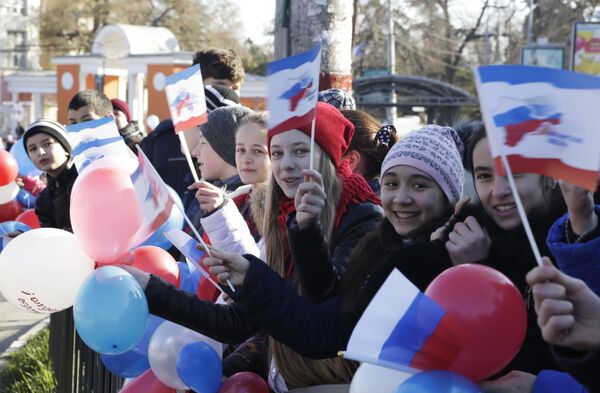
The motto of the new epoch, Aksyonov said, is one of "building bridges," in the form of the road bridge to the Kerch peninsula, which is slated to connect Crimea with Russia's Kerch peninsula in 2018, and the new energy bridge which recently restored electricity to Crimea.
For the official, the motto also means "building bridges with other countries" in the form of "people's diplomacy," including inviting politicians and businessmen from Japan, France, Italy, Germany, Poland, and other countries in order to break through the sanctions placed on Crimea by Western countries.
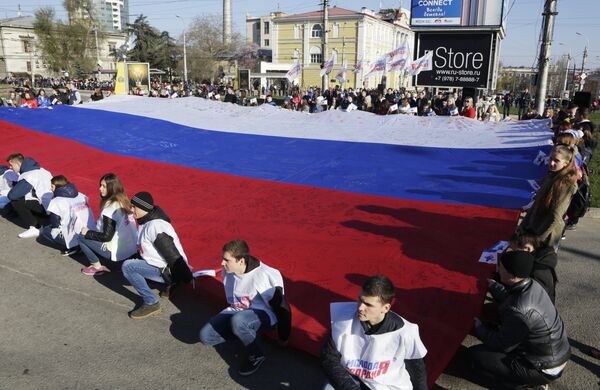
As for Crimea's residents, they have demonstrated again and again that that none of the difficulties they have been forced to endure as a result of the actions of Ukrainian, European and American politicians could shake their assurance that they made the right move in 2014.
In response to the cut, Russian authorities requested the Russian Public Opinion Research Center, one of the country's largest and most respected polling institutions, to conduct a poll of Crimeans' views on the prospects for a new electricity contract with Ukraine.
The poll found that 93.1% of the respondents would not support a new contract, if it were written up to say that their peninsula was 'part of Ukraine'. At the same time, 94% of those polled said that they would be willing to endure further shortages if a contract could not be reached, and that they would wait for the second line of the Russian energy bridge to be completed.
Curious over whether Crimeans were really this stubborn, or whether it was all Russian propaganda, the Ukrainian office of the German market research firm GfK decided, in February, to carry out its own survey. The results were not pleasing (for them): they discovered that 82% of Crimeans 'fully supported' the decision to join Russia, with another 11% saying they were 'mostly supportive' of the move.
Speaking to Russia's Izvestia newspaper, Olga Kovitidi, Crimea's representative in Russia's upper house of parliament, recalled that politics and patriotism aside, in the economic sense too, Russian authorities have done a great deal to rehabilitate the peninsula, which had suffered decades of economic neglect after the collapse of the Soviet Union due to Ukrainian mismanagement.
Moreover, she said, Crimea, a popular tourist destination back in Soviet times, is reestablishing its famed place as a jewel of tourism. In 2015, tourism brought over 2 billion rubles into the region's coffers – over 24% more than in 2014.
Vox Populi
But what do ordinary Crimeans think? Ahead of the anniversary of the referendum, Russian news agency RIA Novosti spoke with residents in the streets of the Crimean capital of Simferopol.
Elena, a cook at a cafe in the city's center, told RIA Novosti's correspondent that she voted in favor of reunification, and would do so again in a heartbeat if asked. One of the most positive changes, she noted, was that she now receives a legal salary.
"I'm a cook in a café, and my salary arrives on my bank card – deductions are being made for retirement. Before, we didn't have this; I worked the same as I do now, but didn't receive my pay regularly. Sometimes it was divided into four parts, and sometimes it would not come at all for two months at a time."
Yulia, a businesswoman who owns a small business which sells tea, told RIA Novosti that she too voted 'yes', and would do so again. "New jobs are appearing, industry has been awakened. There is progress, and I'm happy to see that." At the same time, she noted, "issues which need work include peoples' standards of living, the condition of roads and cities, the streets' cleanliness – here there are problems."
Her business partner Anna added that a definite plus is the appearance of free medical services – the possibility to get care without paying, and the fact that hospitals have begun the basic service of feeding patients.
Yulia and Anna too cited creeping food prices as a problem, but noted that they hope the issue will be resolved as soon as the road bridge across the Kerch Strait is completed, connecting Crimea to mainland Russia.
Lyennara, a businesswoman from Simferopol, told RIA Novosti's correspondent that she didn't participate in the 2014 referendum, but would vote to join Russia if given the chance today. Lyennara is a Crimean Tatar, and recalled that in 2014, the Mejlis, an organization purporting to represent the Crimean Tatar community, had told Tatars not to participate.
"We thought back then that this was the correct decision. But time has passed, and people have started thinking differently. I decided [against voting], but have realized that maybe this was a mistake. This is my personal opinion."
When asked what still remains to be improved, Lyennara listed lines in government offices and commercial banks. Positive things, she said, include simple things, like that there is now street lighting after 15 years of dark street lamps, new paved roads, and government workers who are now more accessible. "It's become possible for ordinary citizens to get through to officials directly, through social networks. In Ukraine, this was something I could not do."
Her most sincere wish, she said, is to see an end to the artificial divisions within the Crimean Tatar community. "Personally, I will make every effort to see that this separation among our people goes away, because it's impossible to divide people into 'ours' and 'not ours' in this situation – on the issue of Crimea becoming part of Russia. I think that things will be all right – the main thing is that the people themselves are consciously prepared for new, positive changes."

